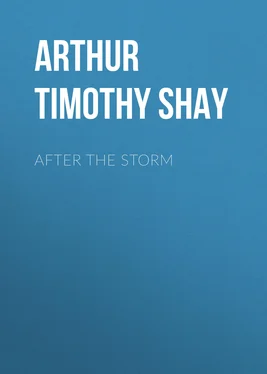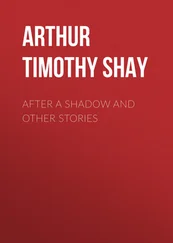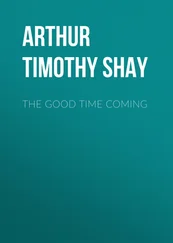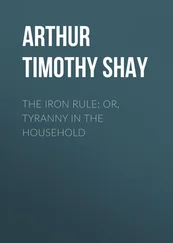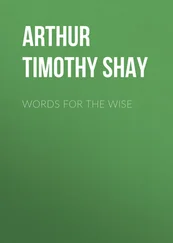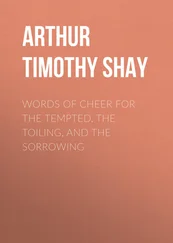Timothy Arthur - After the Storm
Здесь есть возможность читать онлайн «Timothy Arthur - After the Storm» — ознакомительный отрывок электронной книги совершенно бесплатно, а после прочтения отрывка купить полную версию. В некоторых случаях можно слушать аудио, скачать через торрент в формате fb2 и присутствует краткое содержание. Жанр: foreign_sf, literature_19, foreign_antique, foreign_prose, на английском языке. Описание произведения, (предисловие) а так же отзывы посетителей доступны на портале библиотеки ЛибКат.
- Название:After the Storm
- Автор:
- Жанр:
- Год:неизвестен
- ISBN:нет данных
- Рейтинг книги:5 / 5. Голосов: 1
-
Избранное:Добавить в избранное
- Отзывы:
-
Ваша оценка:
- 100
- 1
- 2
- 3
- 4
- 5
After the Storm: краткое содержание, описание и аннотация
Предлагаем к чтению аннотацию, описание, краткое содержание или предисловие (зависит от того, что написал сам автор книги «After the Storm»). Если вы не нашли необходимую информацию о книге — напишите в комментариях, мы постараемся отыскать её.
After the Storm — читать онлайн ознакомительный отрывок
Ниже представлен текст книги, разбитый по страницам. Система сохранения места последней прочитанной страницы, позволяет с удобством читать онлайн бесплатно книгу «After the Storm», без необходимости каждый раз заново искать на чём Вы остановились. Поставьте закладку, и сможете в любой момент перейти на страницу, на которой закончили чтение.
Интервал:
Закладка:
"Shall I call your father? He is very anxious about you."
"Not yet." And she caught slightly her breath, as if feeling were growing too strong for her.
"Let it be as a dream, Hartley." Irene lifted herself up and looked calmly, but with a very sad expression on her countenance, into her husband's face.
"Between us two, Irene, even as a dream from which both have awakened," he replied.
She closed her eyes and sunk back upon the pillow.
Mr. Emerson then went to the door and spoke to Mr. Delancy. On a brief consultation it was thought best for Dr. Edmundson not to see her again. A knowledge of the fact that he had been called in might give occasion for more disturbing thoughts than were already pressing upon her mind. And so, after giving some general directions as to the avoidance of all things likely to excite her mind unpleasantly, the doctor withdrew.
Mr. Delancy saw his daughter alone. The interview was long and earnest. On his part was the fullest disapproval of her conduct and the most solemnly spoken admonitions and warnings. She confessed her error, without any attempt at excuse or palliation, and promised a wiser conduct in the future.
"There is not one husband in five," said the father, "who would have forgiven an act like this, placing him, as it does, in such a false and humiliating position before the world. He loves you with too deep and true a love, my child, for girlish trifling like this. And let me warn you of the danger you incur of turning against you the spirit of such a man. I have studied his character closely, and I see in it an element of firmness that, if it once sets itself, will be as inflexible as iron. If you repeat acts of this kind, the day must come when forbearance will cease; and then, in turning from you, it will be never to turn back again. Harden him against you once, and it will be for all time."
Irene wept bitterly at this strong representation, and trembled at thought of the danger she had escaped.
To her husband, when she was alone with him again, she confessed her fault, and prayed him to let the memory of it pass from his mind for ever. On his part was the fullest denial of any purpose whatever, in the late misunderstanding, to bend her to his will. He assured her that if he had dreamed of any serious objection on her part to the ride, he would not have urged it for a moment. It involved no promised pleasure to him apart from pleasure to her; and it was because he believed that she would enjoy the drive that he had urged her to make one of the party.
All this was well, as far as it could go. But repentance and mutual forgiveness did not restore everything to the old condition—did not obliterate that one sad page in their history, and leave them free to make a new and better record. If the folly had been in private, the effort at forgiving and forgetting would have been attended with fewer annoying considerations. But it was committed in public, and under circumstances calculated to attract attention and occasion invidious remark. And then, how were they to meet the different members of the wedding-party, which they had so suddenly thrown into consternation?
On the next day the anxious members of this party made their appearance at Ivy Cliff, not having, up to this time, received any intelligence of the fugitive bride. Mr. Delancy did not attempt to excuse to them the unjustifiable conduct of his daughter, beyond the admission that she must have been temporarily deranged. Something was said about resuming the bridal tour, but Mr. Delancy said, "No; the quiet of Ivy Cliff will yield more pleasure than the excitement of travel."
And all felt this to be true.
CHAPTER VI
AFTER THE STORM
AFTER the storm. Alas! that there should be a wreck-strewn shore so soon! That within three days of the bridal morning a tempest should have raged, scattering on the wind sweet blossoms which had just opened to the sunshine, tearing away the clinging vines of love, and leaving marks of desolation which no dew and sunshine could ever obliterate!
It was not a blessed honeymoon to them. How could it be, after what had passed? Both were hurt and mortified; and while there was mutual forgiveness and great tenderness and fond concessions, one toward the other, there was a sober, thoughtful state of mind, not favorable to happiness.
Mr. Delancy hoped the lesson—a very severe one—might prove the guarantee of future peace. It had, without doubt, awakened Irene's mind to sober thoughts—and closer self-examination than usual. She was convicted in her own heart of folly, the memory of which could never return to her without a sense of pain.
At the end of three weeks from the day of their marriage, Mr. and Mrs. Emerson went down to the city to take possession of their new home. On the eve of their departure from Ivy Cliff, Mr. Delancy had a long conference with his daughter, in which he conjured her, by all things sacred, to guard herself against that blindness of passion which had already produced such unhappy consequences. She repeated, with many tears, her good resolutions for the future, and showed great sorrow and contrition for the past.
"It may come out right," said the old man to himself; as he sat alone, with a pressure of foreboding on his mind, looking into the dim future, on the day of their departure for New York. His only and beloved child had gone forth to return no more, unless in sorrow or wretchedness. "It may come out right, but my heart has sad misgivings."
There was a troubled suspense of nearly a week, when the first letter came from Irene to her father. He broke the seal with unsteady hands, fearing to let his eyes fall upon the opening page.
"My dear, dear father! I am a happy young wife."
"Thank God!" exclaimed the old man aloud, letting the hand fall that held Irene's letter. It was some moments before he could read farther; then he drank in, with almost childish eagerness, every sentence of the long letter.
"Yes, yes, it may come out right," said Mr. Delancy; "it may come out right." He uttered the words, so often on his lips, with more confidence than usual. The letter strongly urged him to make her a visit, if it was only for a day or two.
"You know, dear father," she wrote, "that most of your time is to be spent with us—all your winters, certainly; and we want you to begin the new arrangement as soon as possible."
Mr. Delancy sighed over the passage. He had not set his heart on this arrangement. It might have been a pleasant thing for him to anticipate; but there was not the hopeful basis for anticipation which a mind like his required.
Not love alone prompted Mr. Delancy to make an early visit to New York; a feeling of anxiety to know how it really was with the young couple acted quite as strongly in the line of incentive. And so he went down to the city and passed nearly a week there. Both Irene and her husband knew that he was observing them closely all the while, and a consciousness of this put them under some constraint. Everything passed harmoniously, and Mr. Delancy returned with the half-hopeful, half-doubting words on his lips, so often and often repeated—
"Yes, yes, it may come out right."
But it was not coming out altogether right. Even while the old man was under her roof, Irene had a brief season of self-willed reaction against her husband, consequent on some unguarded word or act, which she felt to be a trespass on her freedom. To save appearances while Mr. Delancy was with them, Hartley yielded and tendered conciliation, all the while that his spirit chafed sorely.
The departure of Mr. Delancy for Ivy Cliff was the signal for both Irene and her husband to lay aside a portion of the restraint which each had borne with a certain restlessness that longed for a time of freedom. On the very day that he left Irene showed so much that seemed to her husband like perverseness of will that he was seriously offended, and spoke an unguarded word that was as fire to stubble—a word that was repented of as soon as spoken, but which pride would not permit him to recall. It took nearly a week of suffering to discipline the mind of Mr. Emerson to the point of conciliation. On the part of Irene there was not the thought of yielding. Her will, supported by pride, was as rigid as iron. Reason had no power over her. She felt, rather than thought.
Читать дальшеИнтервал:
Закладка:
Похожие книги на «After the Storm»
Представляем Вашему вниманию похожие книги на «After the Storm» списком для выбора. Мы отобрали схожую по названию и смыслу литературу в надежде предоставить читателям больше вариантов отыскать новые, интересные, ещё непрочитанные произведения.
Обсуждение, отзывы о книге «After the Storm» и просто собственные мнения читателей. Оставьте ваши комментарии, напишите, что Вы думаете о произведении, его смысле или главных героях. Укажите что конкретно понравилось, а что нет, и почему Вы так считаете.
